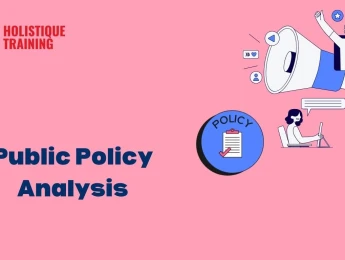Across the public sector, demand is growing for bigger and more efficient services with the same financial constraints and workforce expectations. This is forcing public sector organisations to rethink their operations to provide a more flexible and innovative operation to meet service levels and deliver results.
The new generation of working styles also means that businesses are now considering remote work as a viable option to keep office space costs down, and employees are now expecting more flexible working hours to help with their well-being and work-life balance.
The changes in the environment mean that managers and business owners are now having to consider alternative methods of communication and monitoring to keep their workforce happy and motivated. They must also maintain performance management processes to maintain the quality and productivity of the work produced.
To meet clients' high demands, public sector organisations are revising system requirements, investigating automation, and developing new and improved methods to stay in touch with employees, empower them to do the right thing and hold them accountable when something goes wrong.
Upon completion of this course, participants will be able to:
- Implement effective methods of performance management.
- Monitor performance and flag issues for future development.
- Uncover innovative systems and techniques to meet demand on a reduced budget.
- Develop effective and efficient communication methods to help keep employees connected.
- Devise smart working styles to boost morale and engagement from employees.
- Monitor performance based on peer and customer feedback.
- Develop great negotiation techniques to gain mutually beneficial working relationships with clients and partners.
- Gain stakeholder buy-in for proposed changes based on accurate statistics.
- Regularly review your operation and identify pain points for improvement.
- Put in strategic project plans with feasible timeframes for change.
- Predict future changes based on forecasting and use SMART targets to monitor employees to meet these expectations ahead of time.
This course is designed for anyone who is responsible for operational development and growth within a public sector organisation. It would be most beneficial for:
- Operations Managers
- Business Owners
- Managing Directors
- HR Personnel
- Finance Managers
- Project Planners
- Change & Control Managers
- Risk Assessors
- Engagement & Motivational Leaders
This course uses various adult learning styles to aid full comprehension and maximum understanding. It consists of group journey mapping practical exercises to identify areas for improvement, role-playing activities to help with performance management, target setting, and dealing with difficult conversations, and presentations to display innovative systems for automating processes.
Participants will be tasked with group decision-making tasks and project plans to structure the future of their operation, maintain performance, achieve the best results, and stay within the set budget.
Day 5 of each course is reserved for a Q&A session, which may occur off-site. For 10-day courses, this also applies to day 10
Section 1: The Benchmark for Public Sector Performance
- Performance management as a positive move.
- Non-cash incentives in a public sector or non-profit environment.
- A comprehensive overview of government expectations.
- The principles of performance management against targets and budgets.
- Effective management and what this means for your organisation.
- How to customise your management style to your contracts.
Section 2: Performance Management Initiatives in a Changing Environment
- Journey mapping and problem area identification.
- Fundamental performance management procedures.
- Developing talent using policies and planning.
- Finding the right leaders to carry your operation forward.
- Top-down approaches - gaining buy-in.
- Aligning your organisation’s identity with other key players.
- Legislation and your obligations.
- Goals and objectives to improve your service.
- The 4-step implementation model.
Section 3: Performance Management Strategies
- Diagnostics - assessments of your primary activities and deliverables.
- Ensuring your organisation is customer-focused.
- Designing the ‘blue sky’ and working strategically towards this.
- Measuring pre and post-change.
- Designing your goals and creating balanced scorecards.
- Looking for similar organisations to benchmark.
- Your performance KPI tracking.
- Best practice and innovation. Change is good!
Section 4: Implementation & Measurements
- Project management principles and goals.
- The launch, deadlines and phases.
- Quick wins and long-term goals.
- How to track progress.
- Understanding stakeholder requirements and cascading KPIs
- Talent management and utilising strengths to achieve goals.
- Effective communication across multiple channels.
- Automated measurement and review.
- Modification flags.
Section 5: Goals & Target Setting
- SMART targets.
- Scorecard monitoring.
- KPIs and measuring adherence.
- Performance reviews and improvement plans.
- Performance analysis and factor importance.
- Quality assurance and setting the standard.
- Performance management problems and how to address them.
- Engagement and motivation.
- Difficult conversation management.
Section 6: Managing Stakeholder Expectations
- Communication across organisational strategies.
- Negotiation techniques.
- Creating a mutually beneficial workflow.
- Dealing with push-back.
- Process changes and selling the benefits.
- Explaining the budget and offering simple, understanding strategies.
- Presenting results in a clear format.
Section 7: Sustaining Performance & Handling Setbacks
- Planning for the future based on intelligent forecasting.
- Constructive development models.
- How to coach and mentor for success.
- Recovery and business continuity plans from setbacks.
- Implementing automation to save money.
- Changing approach and remaining flexible.
Upon successful completion of this training course, delegates will be awarded a Holistique Training Certificate of Completion. For those who attend and complete the online training course, a Holistique Training e-Certificate will be provided.
Holistique Training Certificates are accredited by the British Assessment Council (BAC) and The CPD Certification Service (CPD), and are certified under ISO 9001, ISO 21001, and ISO 29993 standards.
CPD credits for this course are granted by our Certificates and will be reflected on the Holistique Training Certificate of Completion. In accordance with the standards of The CPD Certification Service, one CPD credit is awarded per hour of course attendance. A maximum of 50 CPD credits can be claimed for any single course we currently offer.
- Course Code PH1-111
- Course Format Classroom, Online,
- Duration 5 days














